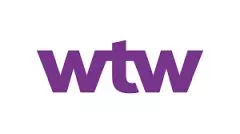Though directors require traditional skills such as management and strategic vision, the need for technology and human capital capabilities is rising.
Recently, several studies have highlighted the changing composition of company boards as well as their evolving responsibilities and focus in a dynamic business environment. Effective boards develop new skills to thrive while maintaining the traditional skills necessary for good governance.
NACD's 2024 Inside the Public Company Boardroom suggests that the need for nontraditional skills is rising. These include technology, human capital, cybersecurity and digital skills. According to the research, the most recent class of appointed directors possesses a higher percentage of members with these skills than the group of retiring directors. Leadership abilities (the most prevalent skills for directors) also are growing, according to the study. A different NACD piece suggests innovation skills are critical to board success over time.
The 2024 study also reports that several traditional skills are less represented among incoming directors. These include management and strategic vision, finance, global experience, industry/operations experience, and sales and marketing. Importantly, however, the prevalence of these skills remains high among directors.
Conversations with current directors also indicate risk management, rational decision making, corporate governance, legal oversight, market knowledge and the ability to create followership – including being a "leader of leaders" – remain critical for board members.
5 topics boards spend the most time discussing
Recent research from a collaboration between WTW and Directors and Boards explored key themes in the evolution of effective stewardship among boards. According to the study, the five areas that board members currently spend the most time discussing are:
- Financial performance monitoring and reporting
- Purpose and strategy development
- Human capital (leadership succession and development)
- Innovation and transformation
- Enterprise risk management
While board members ranked AI, cybersecurity and data privacy ninth in terms of time spent, WTW's 2024 Global Directors and Officers Survey Report listed cyberattacks and data loss as two of the top three risks globally (the top risk is health and safety, which can impact multiple categories). These studies also suggest effective boards use their members' new and traditional skills in the current governance environment.
According to the Directors and Boards study, directors are observing a potential shift in the topics that boards consider material to the business and their fiduciary duties. While financial performance monitoring and reporting remains the top priority, board members also find it important to spend more time in three areas material to the business: leadership succession and development, purpose and strategy development, and innovation and transformation. This combination of material issues further requires a mix of new and traditional skills for directors.
Board members also say they would like to spend more time on long-term goals and planning. Over 40% of the board members surveyed feel they don't spend enough time on strategic planning for the next 10 years. They report boardroom discussions often get bogged down on business results and issues for the next quarter or next year, leaving limited time to focus on sustainable long-term value creation.
5 critical leadership skills
In their book The Courage to Advance, authors Bonnie Hagemann and Lisa Pent identified five leadership skill areas exhibited by members of Women Executives on Boards. Membership in this organization includes graduates of Harvard Business School's executive education program Women on Boards: Succeeding as a Corporate Director. These five themes reflect broad skills required of directors for deeper and more enduring governance effectiveness:
- Courage: The mental or moral strength to venture, persevere and withstand danger, fear or difficulty, involving taking risks, being comfortable failing and learning from that failure
- Resiliency: The internal mental and physical fortitude that helps leaders to keep getting up in the face of adversity
- Adaptability: The practice of accepting and adjusting to changes in the environment, including purposeful change in response to new information or insights
- Sensemaking: The ongoing process of giving meaning to one's experiences and making sense of ambiguous situations, including learning to pick up weak signals, taking time to understand what is happening and predicting what may be coming around the corner
- Vulnerability: The act of placing yourself in an emotionally, psychologically or physically open state and being authentic, honest and as transparent as possible, including admitting the need for help and accepting help when it's offered
These studies indicate effective boards add new skills without losing their core competence in fundamental governance areas. Board skill requirements continue to evolve as boards, their organizations and material priorities evolve. While new and traditional skills may compete for brain space or prominence, effective boards incorporate both into their operations and cultures
A version of this article originally appeared on Forbes on October 30, 2024.
The content of this article is intended to provide a general guide to the subject matter. Specialist advice should be sought about your specific circumstances.


